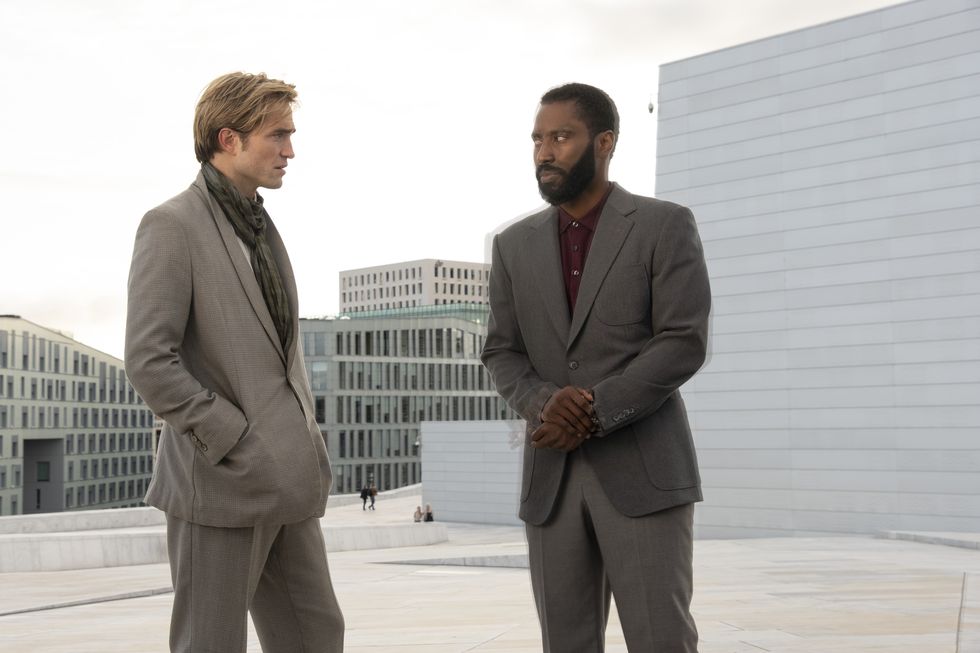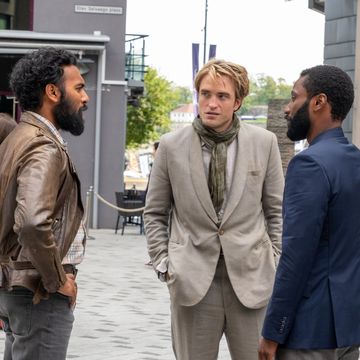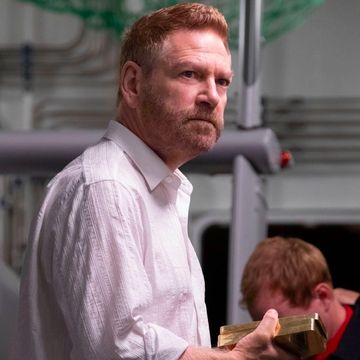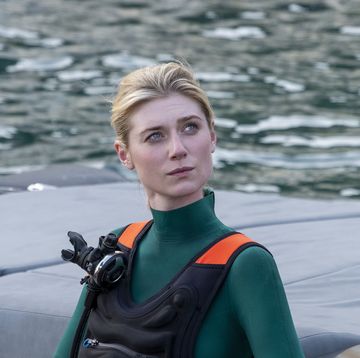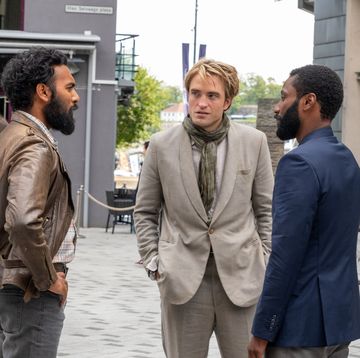This article contains significant spoilers for the plot of Tenet. If you're not watched it yet, probably don't read it.
The Grandfather Paradox gets mentioned in Christopher Nolan's Tenet quite a lot. Characters occasionally whisper it to themselves. You probably whispered it to yourself. But what is it? And what does it have to do with Kenneth Branagh?
The paradox itself is pretty simple: if you went back in time and killed your grandfather by accident, you would then cease to exist, which would mean that you wouldn't have been able to travel back in time to kill him, so he's alive again, but then you exist to go back in time and kill him, so he dies, so you die, so he doesn't die, so you don't exist, so he lives, and so on and on and on. As Robert Pattinson's Neil points out: it's a paradox.
Tenet is keen to stress that what's happening isn't time-travel in the conventional sci-fi sense, just to distance it from the usual paradoxes it would have to navigate. But fundamentally, doesn't the fact that all the characters are experiencing the events as they happen to them tell them that everything's going to be alright? Shouldn't Branagh's Sator know what's going to happen from the future, and be able to change his plans? And do any of the characters have any free will at all once they've seen the inverted action take place?
"This whole reversing the flow of time..." the Protagonist muses. "Doesn't us being here now mean it never happened?"
In short, yes. As Neil says repeatedly: whatever happened, happened. The very fact that the present was observable meant that time and space weren't destroyed by the Algorithm in the end. That Neil was involved at all is proof that the Protagonist managed to get through the whole escapade in order to found the Tenet organisation and recruit him to it.
The critical difference from Sator's point of view is that he does definitely die thanks to the Protagonist's interventions. He gives Kat a gun, she shoots Sator, then she lubes him up with a bit of sun cream and hoys him in the sea. If she hadn't, he'd have taken the CIA-issue suicide pill, which we know is a fake.
The grandfather paradox is the one that gets mentioned in Tenet, but the setting up of Tenet itself is an example of a slightly different paradox. In this one, you still murder your granddad, but you also contrive to get your grandma pregnant, so he stays dead and you become your own granddad. In that timeline, that means you've always been your own granddad. It's called the bootstrap paradox, or a causal loop, and describes a sequence of events which become self-creating. One event seems to cause another, but only happened in the first place because of the second event, which only happened because of the first event, and so on. Chicken, meet egg.
The Protagonist sets up Tenet using information that he's gleaned from living through the events of the film, and enlists Neil to go back into the time-stream and affect events with this knowledge. That's how he knows that the Protagonist really wants a Diet Coke when they first meet – they've been mates for years from Neil's perspective.
By the end of the film, the Protagonist has realised that he is the Protagonist; that he and Neil will always have to take the actions they have done, and that Neil will always be sent off to die. Kat and her son, though, are free. At the end of the film we see them wander off into Hampstead and out of the loop.
The message: you can't change the past. Though quite why Sator didn't get some incredibly advanced medical tech sent back to sort out his pancreatic cancer is another question altogether.
Like this article? Sign up to our newsletter to get more articles like this delivered straight to your inbox
Need some positivity right now? Subscribe to Esquire now for a hit of style, fitness, culture and advice from the experts

